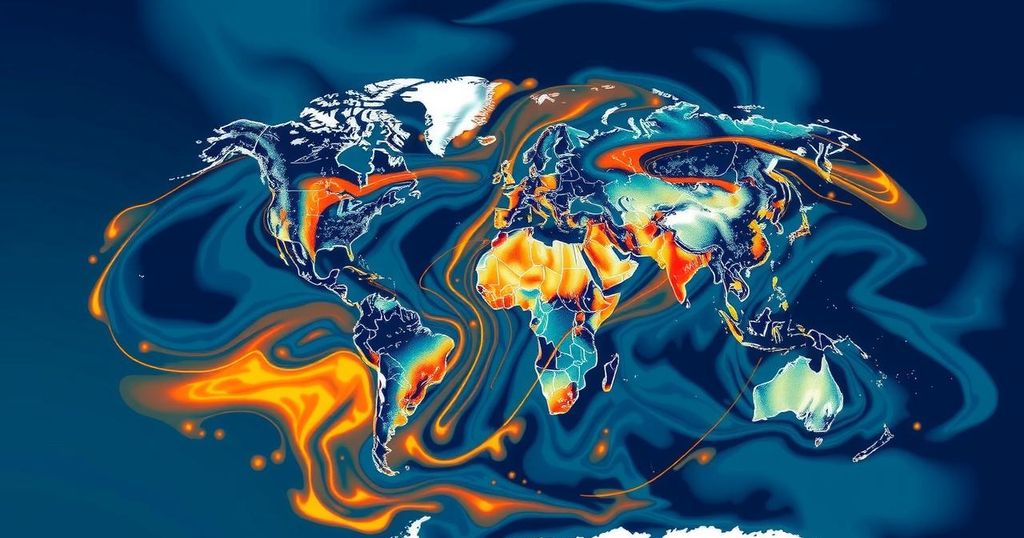The COP29 conference established a climate finance agreement to increase aid for developing countries to $300 billion annually by 2035. This is critical as climate change, coupled with El Niño and La Niña, has driven severe weather affecting over 1.6 billion people in five years. Economic losses from climate disasters are estimated at $115-300 billion annually, with low-income countries suffering most. Advocacy for climate justice is essential to support vulnerable communities.
The recent conclusion of the United Nations Climate Change Conference (COP29) in Baku has led to the establishment of a new climate finance deal, which aims to increase financial assistance for developing countries from $100 billion to $300 billion annually by the year 2035. While this initiative marks a positive development in addressing climate challenges, environmental advocates emphasize that it falls short of the dramatic action needed in light of the escalating climate crisis. With projections indicating that this year could be the first to exceed the critical 1.5°C threshold, the urgency for substantial measures has reached unprecedented heights.
Moreover, the interplay of climate change with phenomena like El Niño and La Niña exacerbates the severity of extreme weather events, adversely affecting over 1.6 billion individuals globally within the past five years. Estimates reveal that economic losses due to climate disasters range from $115 billion to $300 billion annually. Countries with limited resources, particularly low-income nations, are disproportionately affected, facing significant challenges in terms of response and adaptation capabilities. In regions such as Africa, the financial toll of climate change may account for as much as 5-10% of GDP on an annual basis.
In light of these pressing issues, it is imperative to advocate for climate justice, especially for communities situated in climate hotspots. These regions not only contribute minimally to global emissions but also find themselves at higher risk of adverse climate effects. Increased support for climate adaptation and resilience initiatives is vital to ensure these vulnerable populations are not left to fend for themselves amid global climate shifts.
Climate change has emerged as a critical challenge that impacts ecosystems, human health, and economic stability. Current research correlates rising global temperatures with increasing frequency and severity of extreme weather events, a pattern further complicated by climatic phenomena such as El Niño and La Niña. These events disrupt weather patterns, leading to droughts, floods, and other disasters, particularly in regions that are already vulnerable. The international community, recognizing the urgent need for action, has focused efforts on mobilizing finance for climate adaptation and mitigation, particularly in developing countries that bear the brunt of climate-related damages despite contributing little to the problem.
In summary, the outcomes of COP29 underscore the necessity for an ambitious global response to climate change, particularly through increased financial support for developing nations. Although the new climate finance target is a commendable step, experts argue it is insufficient to address the vast challenges posed by climate disruptions, which have profound socio-economic impacts on vulnerable populations. Immediate action towards advancing climate justice and building resilience is crucial to protecting those least responsible for climate change from its most severe consequences.
Original Source: reliefweb.int






